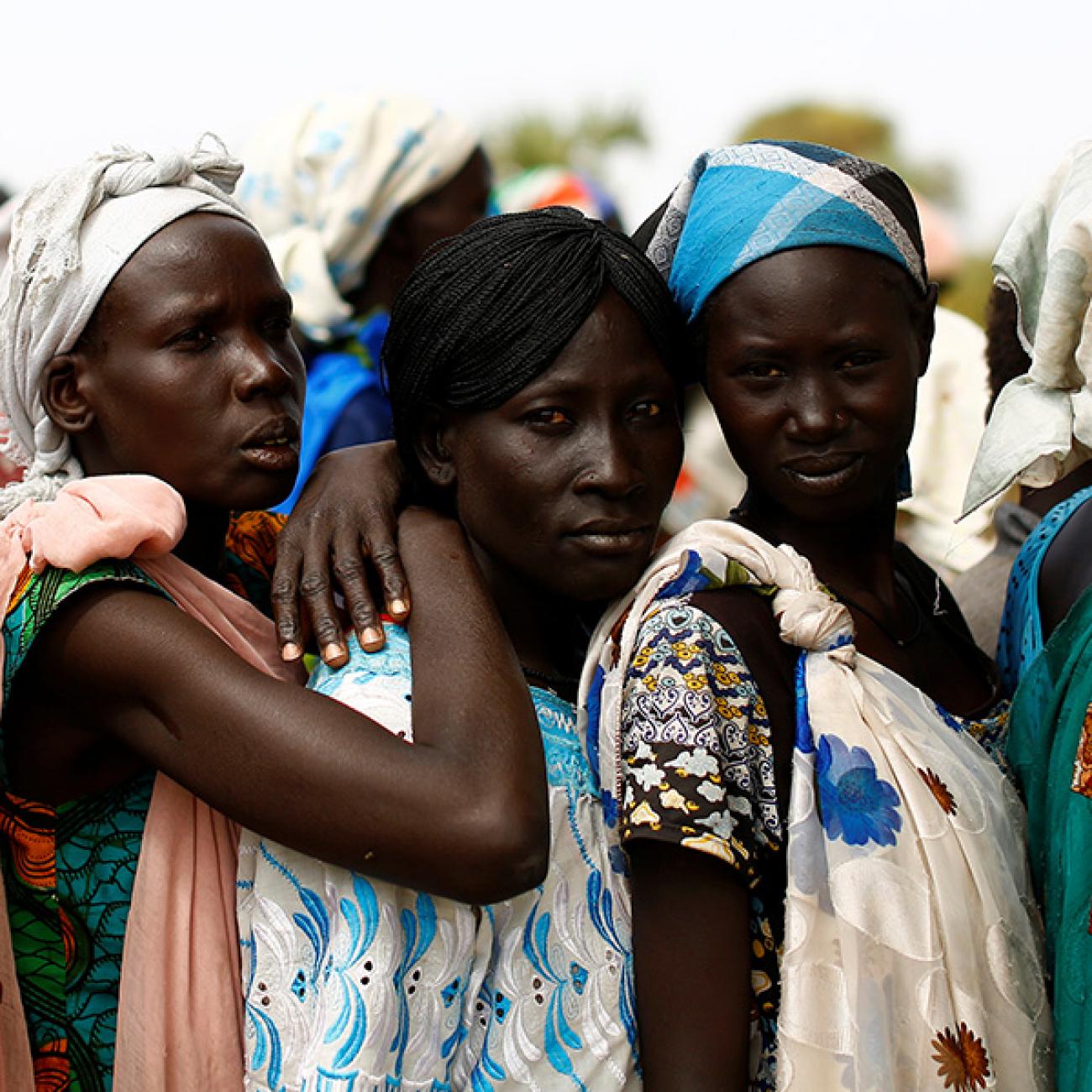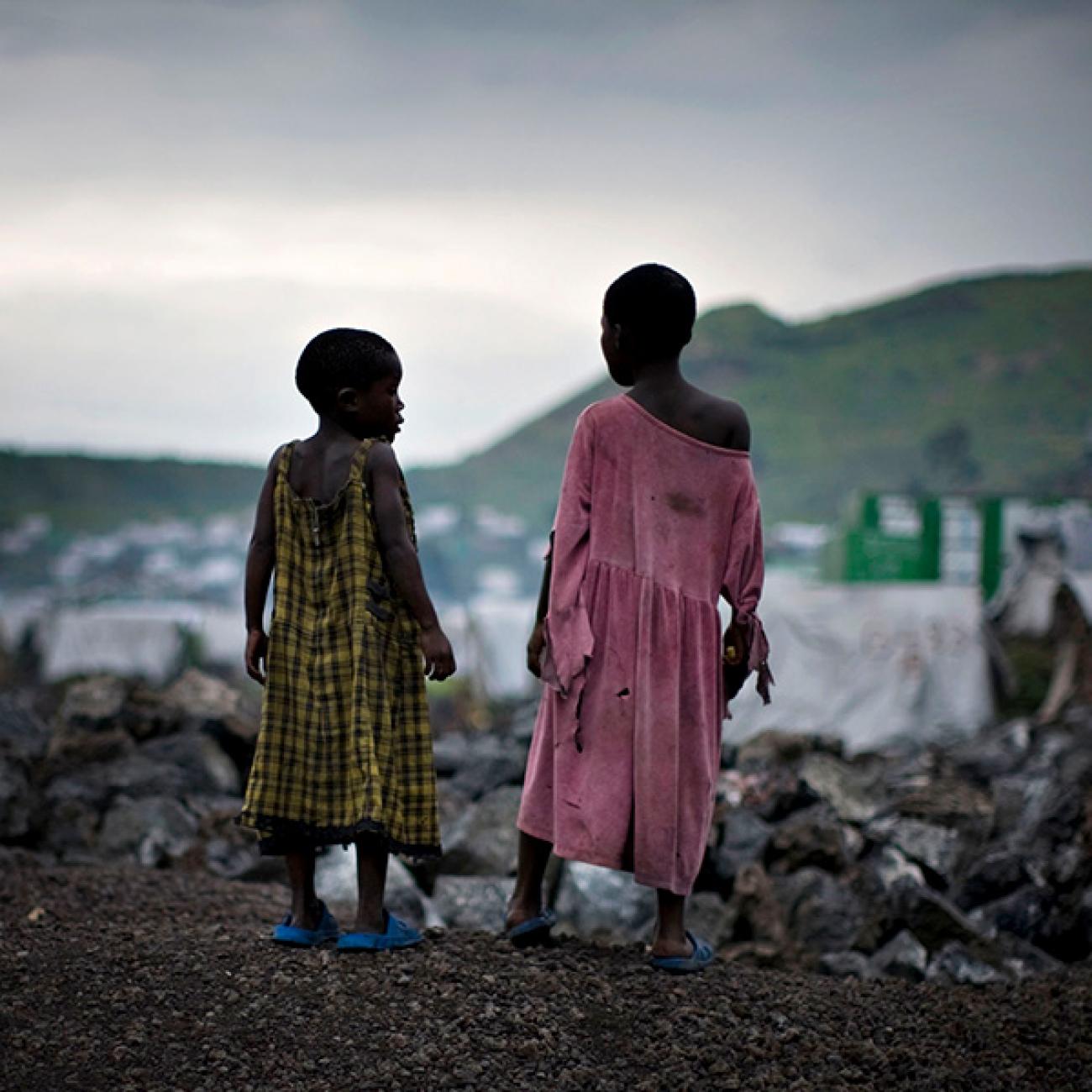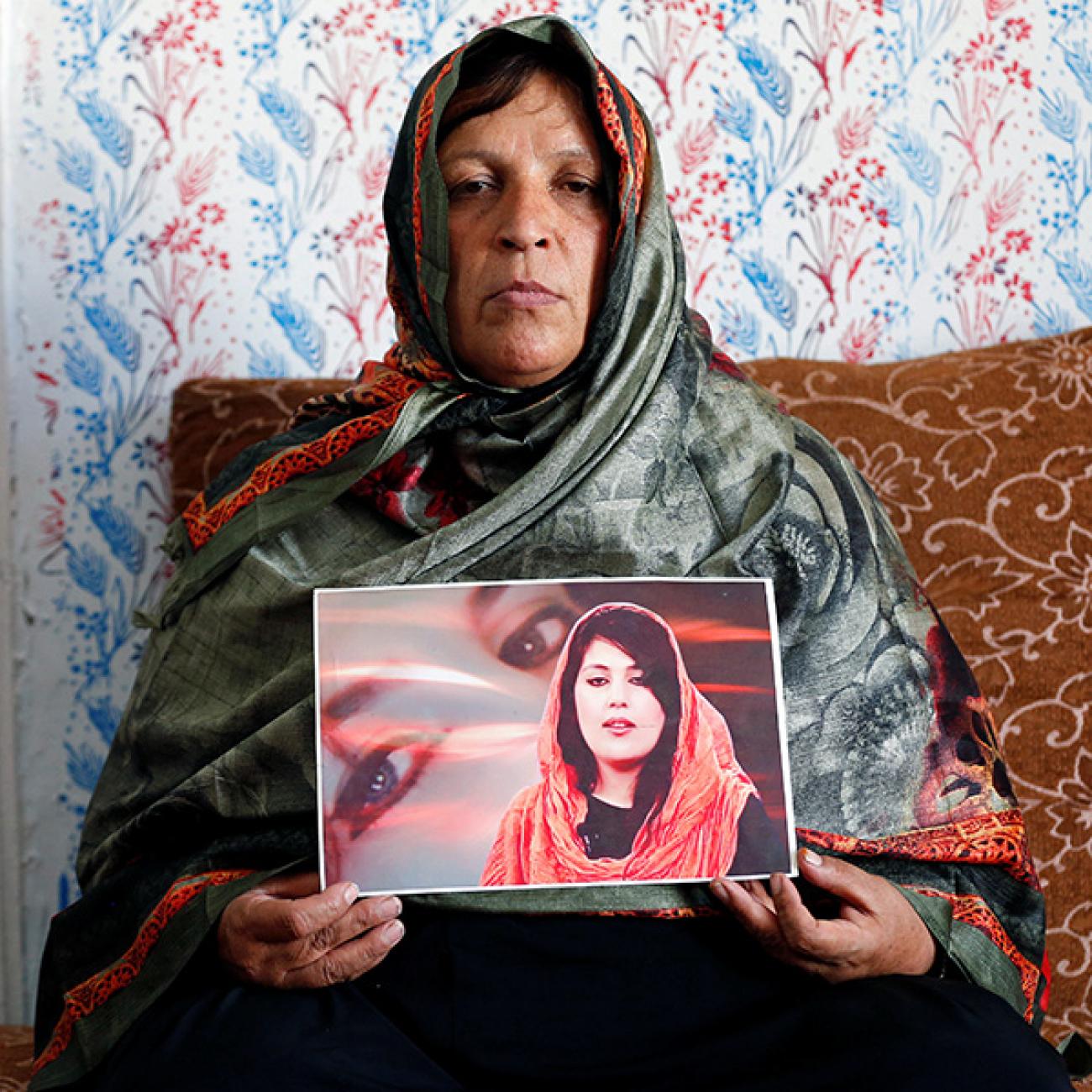This International Women's Day, the world is turning its attention to women's economic empowerment as a force for progress in achieving gender equality.
Under this year's theme, "Count Her In: Invest in Women, Accelerate Progress," women's rights advocates, policymakers, and world leaders will use the observance on March 8, 2024, to examine pathways to greater economic inclusion for women worldwide.
Why Gender-based Violence is a Neglected Barrier to Economic Empowerment
UN Women emphasizes that investing in economic empowerment—a woman's ability to bring about positive change in her life and community as a result of participation in economic activities—"sets a direct path towards gender equality, poverty eradication and inclusive economic growth." Historically, discourse has centered on statistics: measuring women's participation in the job market, whether women have control of resources and access to decent work, and are able to actively engage in economic decision-making. Yet such conversations often neglect the barriers hindering women's access to education, work, and economic resources. A critical and overlooked obstacle to economic empowerment is that 1 in 3 women is a victim of gender-based violence (GBV).
1 in 3 women are victims of gender-based violence
The profound physical, psychological, and emotional toll experienced by women who suffer and endure GBV impedes their ability to secure and sustain employment, access financial services, and acquire the education they need to earn a living wage. Moreover, poverty and economic hardship can coerce individuals to endure abusive relationships. That underscores the role of workplaces have in providing the support and security women need.
The intersection between GBV and economic empowerment is a global concern, transcending geographical, income, and resource disparities. The global cost is estimated at $1.5 trillion, or 2% of global GDP. In Australia, it is estimated that 3.8 million women over the age of 15 have experienced domestic or family violence. More than two-thirds of affected women are part of the workforce. In sub-Saharan Africa, a region with the highest female workforce participation rate in the world, more than 30% of women have experienced some form of domestic violence. Studies show that women who experience violent incidents lose time from paid work, are employed in higher numbers in casual and part-time work, and earn 60% less than women who do not experience such violence.
Coordinating Comprehensive Global Collective Action to Combat Gender-based Violence
It is widely recognized that combating GBV globally requires a multifaceted approach. Legislative measures, including those criminalizing domestic violence, can help—but are not effective alone. Supporting legal and administrative infrastructure, encompassing fundamental procedural guarantees during the judicial process for victim-survivors, and establishing specialized GBV courts that can offer expedited processes tailored to violence cases and ensure that decision-makers are sensitive to victims' needs are all required to stop GBV.
Adequate investments are also needed to integrate service delivery and victim-survivor support, including crisis helplines, counseling, legal aid, medical assistance, and safe housing. Robust data collection on GBV prevalence and the efficacy of anti-GBV programs are equally vital for informed policymaking and designing effective interventions.
Governments need clear strategies to guide the formulation and implementation of anti-GBV programs
To coordinate efforts across those domains, governments need clear strategies to guide the formulation and implementation of anti-GBV programs. The 2030 Agenda for Sustainable Development plays a critical role mobilizing action on women's economic empowerment and violence. This point is reflected in the Sustainable Development Goals (SDGs), which focus on narrowing gender gaps, promoting full and productive employment, poverty reduction and eliminating all forms of violence against women and girls. Although the SDGs present a comprehensive set of objectives to be achieved by 2030, they were not designed to provide tailored solutions.
The Promise of a Human Rights-based Approach
The United Nations (UN) treaty body system is one platform with the potential to fill that gap. It is, however, relatively unfamiliar to the global health community. Treaty bodies, including the Committee on the Elimination of All Forms of Discrimination Against Women (CEDAW), review the 189 countries that have ratified the convention every four years to assess their progress in eliminating discrimination against women.
Governments report on their progress and challenges, and the committee issues recommendations to be implemented before the next review. Civil society organizations contribute alternative reports to the review process, which contain grassroots perspectives on how governments are complying with their obligations under CEDAW.
A main strength of the system is that, unlike the time-bound nature of the SDGs, CEDAW operates as an ongoing dialogue and monitoring mechanism, providing recommendations tailored to the unique challenges countries face, while facilitating improvements, encouraging governments to allocate resources, and refining strategies for more effective implementation so that governments can proactively address problems like these.
In many instances, this adaptive and nuanced approach has been instrumental in accelerating progress toward gender equality in extremely diverse country contexts. Our 2023 research shows that 50% of the predominantly GBV-related laws recommended by the committee have been implemented. This track record is imperfect but represents tangible progress.

CEDAW goes beyond targets set out by the SDGs by leveraging governments' international legal obligations to comply with CEDAW. Our research has revealed many examples of the committee's influence. For example, in response to CEDAW recommendations, Nepal increased penalties for marital rape, Lesotho introduced anti–domestic violence legislation, and Angola updated its penal code to criminalize female genital mutilation. The CEDAW review process is a unique platform where intersectoral programmatic and policy solutions can be condensed to a single forum, supported by a fabric of interconnected economic, social, cultural, and political rights.
Despite its many strengths, the CEDAW review system faces significant challenges that undermine its legitimacy as an accountability mechanism and potential impact. For example, no mechanism provides an overview of which of the committee's recommendations have been implemented at any given time, and how. Further, the committee's reliance on government reports often taken at face value (as opposed to an independent monitoring facility), coupled with underresourced civil society organizations' shouldering the responsibility of verifying information, exacerbates those challenges.
Governments can attempt to avoid being held accountable by making commitments on GBV and women's economic empowerment without corresponding budgetary allocations, selectively share information, or deliberately disregard the needs of marginalized populations. In other cases, governments have presented an overly optimistic picture of their efforts. In Sierra Leone, for example, civil society organizations highlighted that despite the government's establishment of family support units to address high levels of sexual violence. These units did not have the financial and technical support to operate efficiently.
The CEDAW review system faces significant challenges that undermine its legitimacy as an accountability mechanism and potential impact
To address those institutional challenges, the George Institute for Global Health is pioneering the CEDAW Index, a global-first tool responding to the pressing need for data-driven analyses to hold governments accountable for GBV. Covering 110 countries, the index will aim to meet several objectives. It will provide a readout of GBV-related recommendations based on governments' performance in implementing policies, programs, and laws following its last review by the UN committee. It will also assign recommendation with an implementation status (implemented, not implemented, or partially implemented).
The index will highlight interventions such as making legal remedies available to victim-survivors and providing protections to people who need to move into emergency housing, are denied flexible work arrangements, or have their employment terminated for violence-related reasons. The tool will also spotlight programs, policies, and laws that countries resist implementing and link to civil society data to shed light on the challenges facing GBV interventions. These challenges commonly include the limited accessibility of programs due to geographical remoteness, a lack of awareness about available services, or governments' active exclusion of certain populations such as ethnic minorities or women identifying as LGBTQ+.
In providing clarity on the intersections of GBV and economic empowerment, we hope that the CEDAW Index, as a data-driven and rights-based mechanism, will become a powerful addition to the accountability ecosystem. To truly "Count Her In," acknowledging and addressing the pervasive role of GBV is paramount. It is our hope that the CEDAW Index will contribute to this aim.







